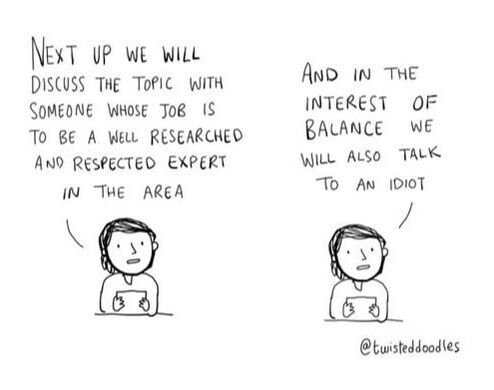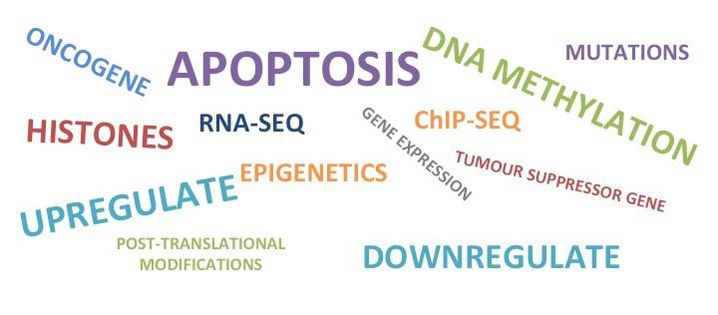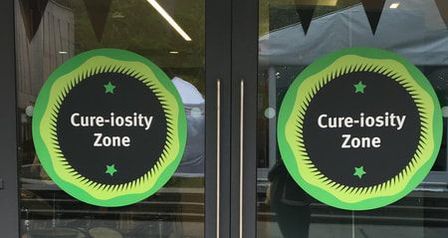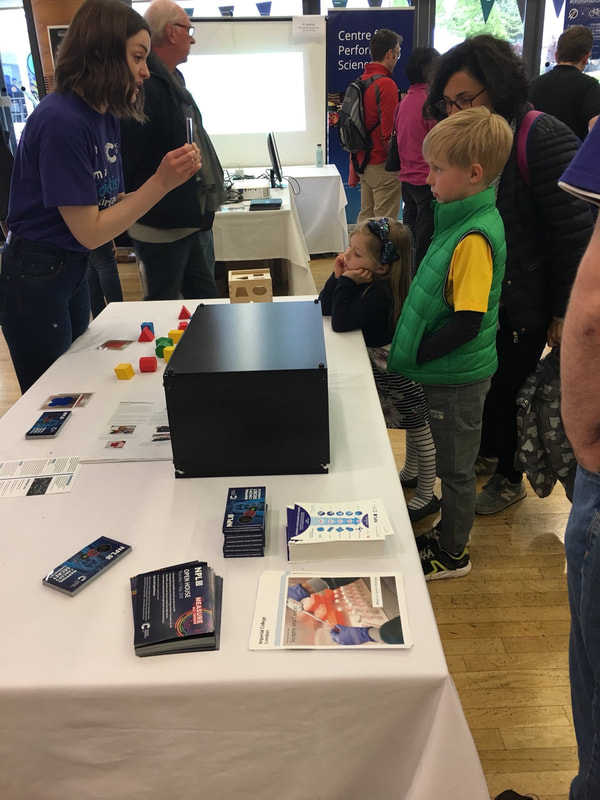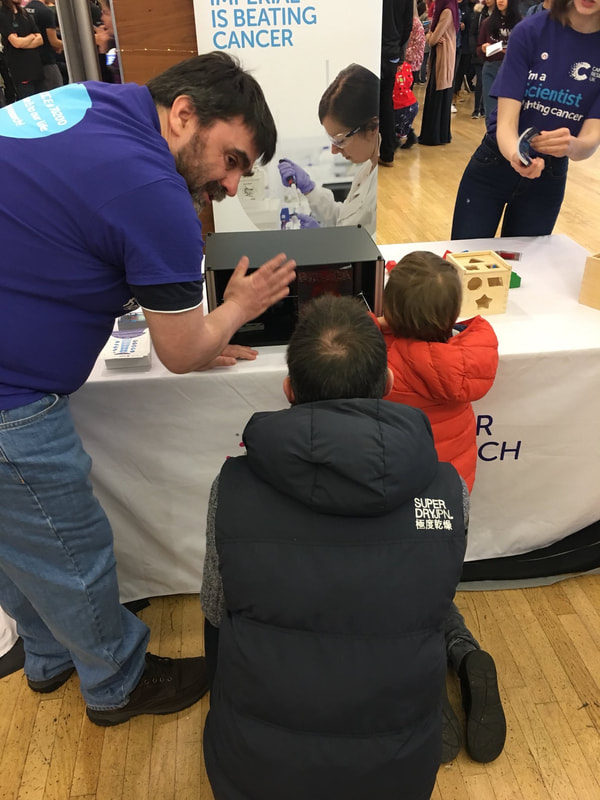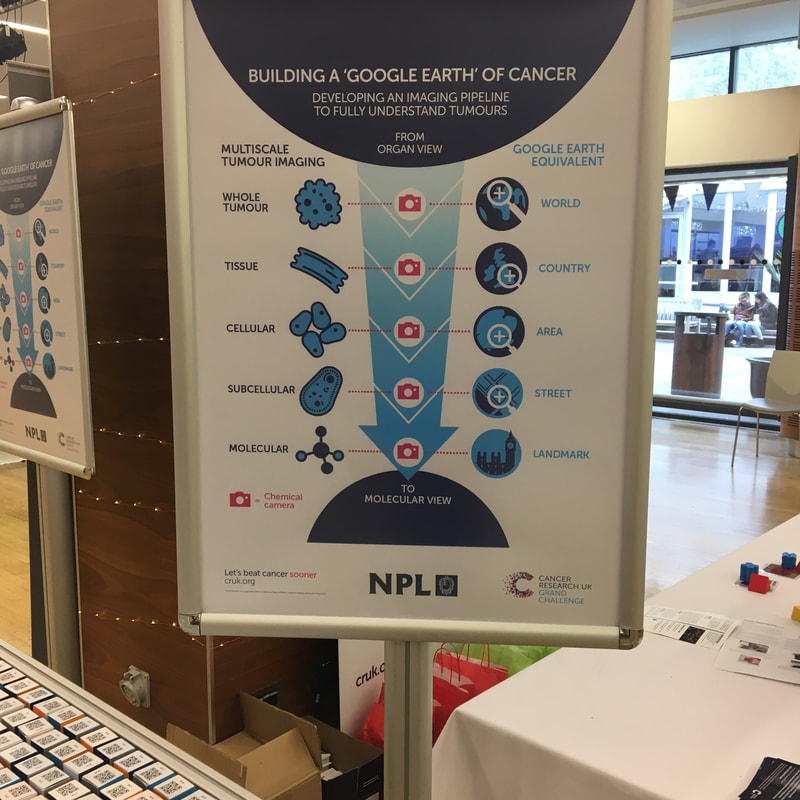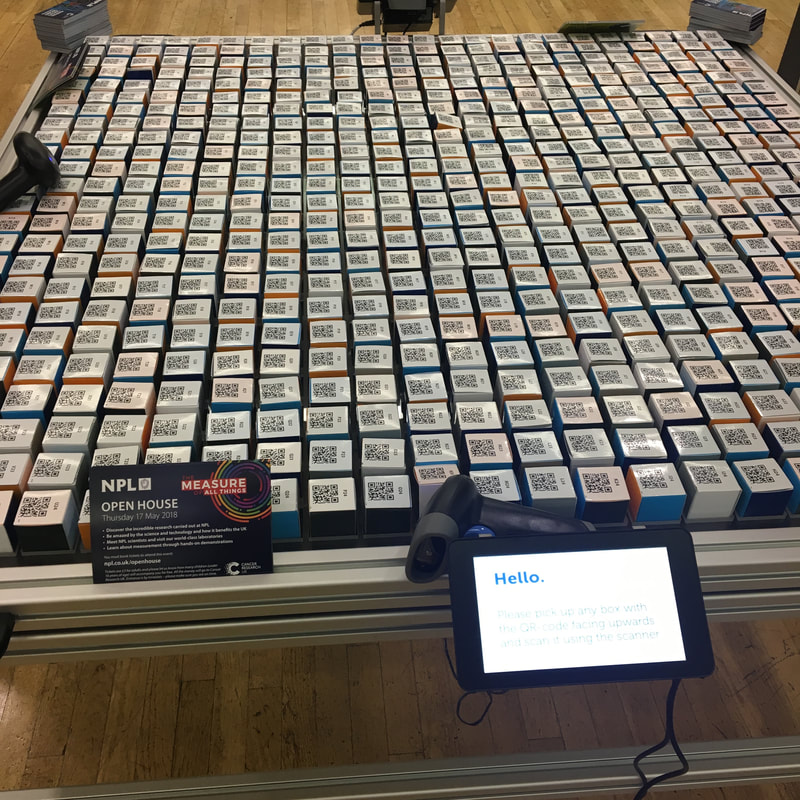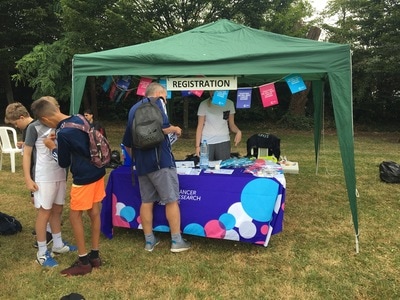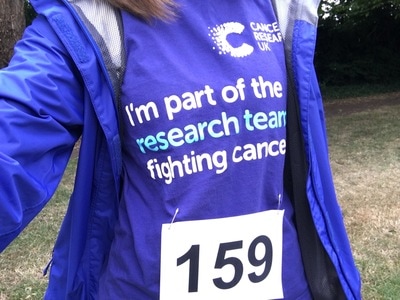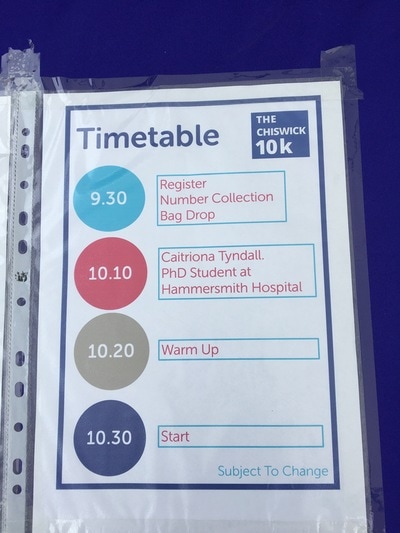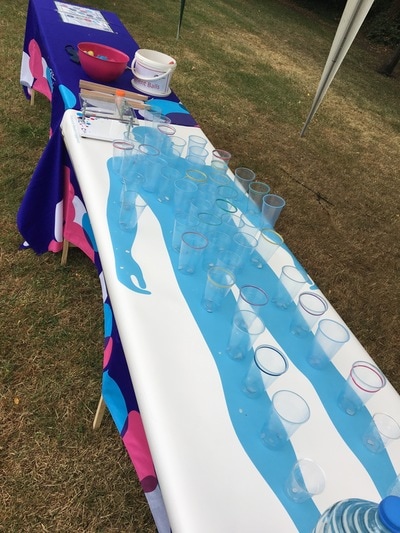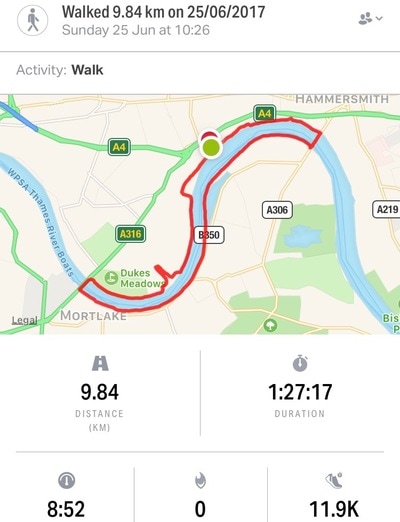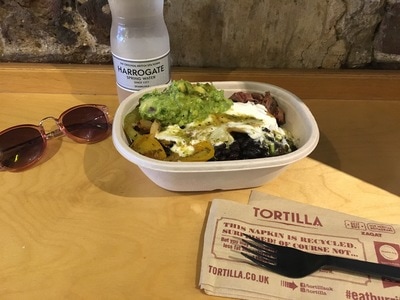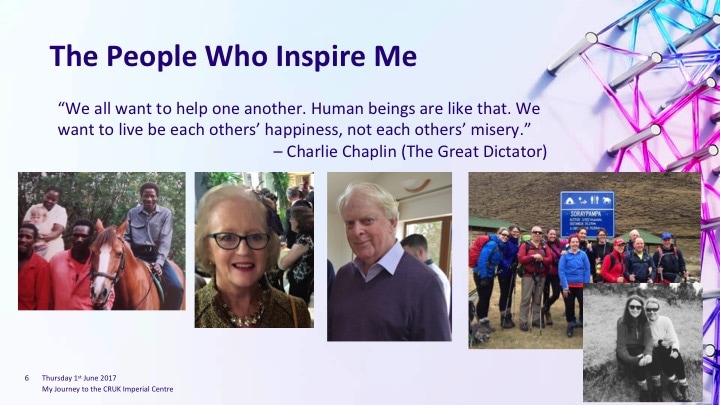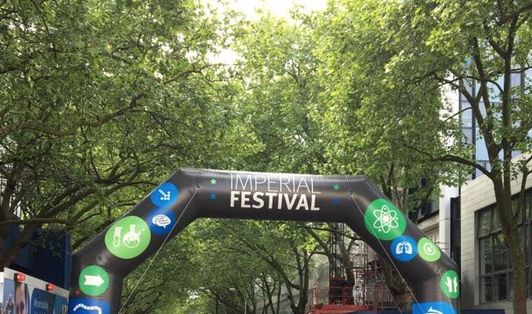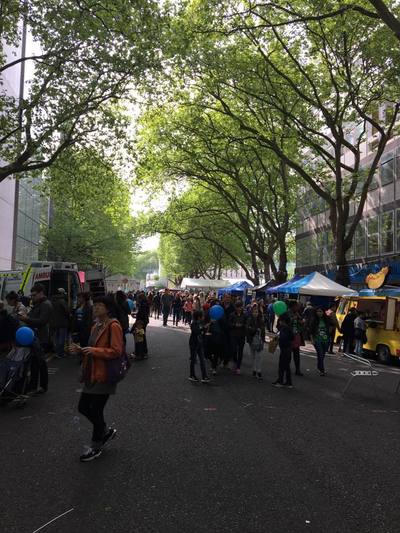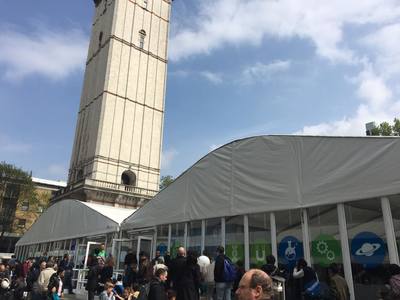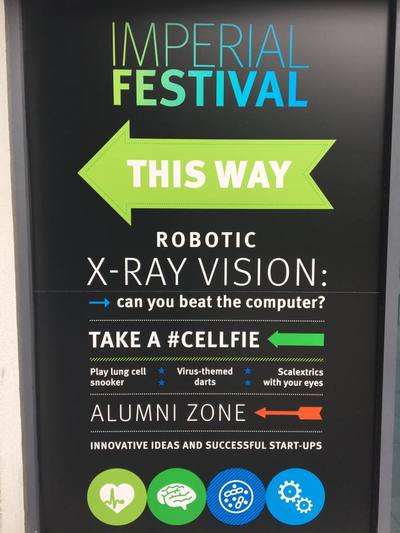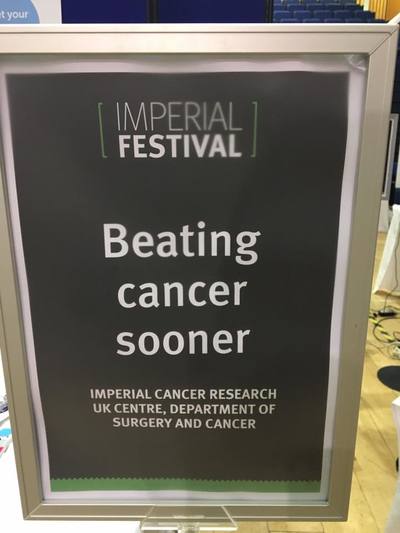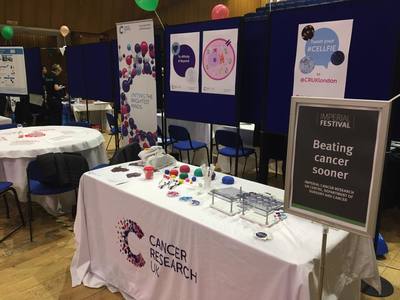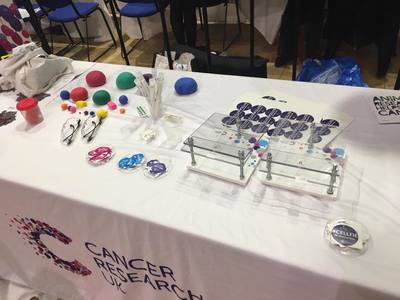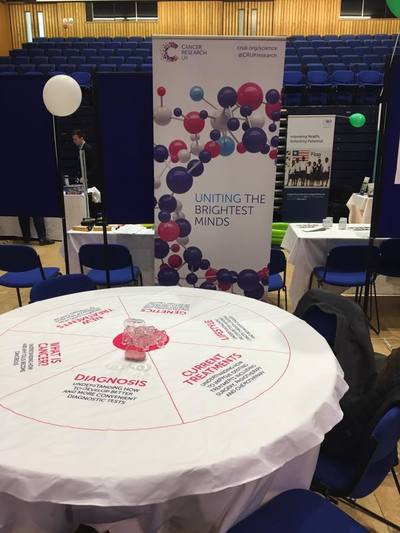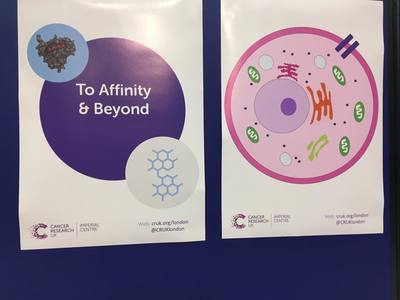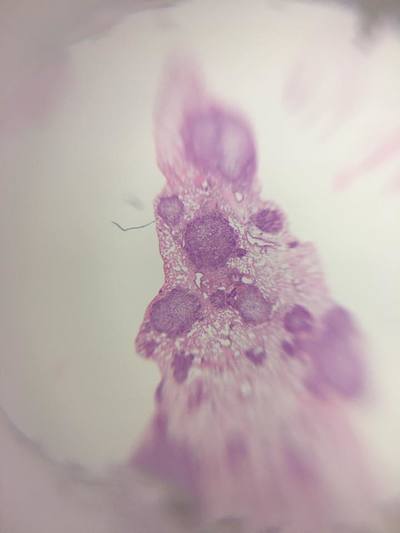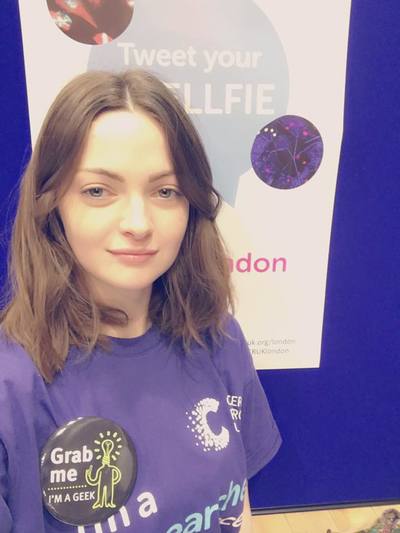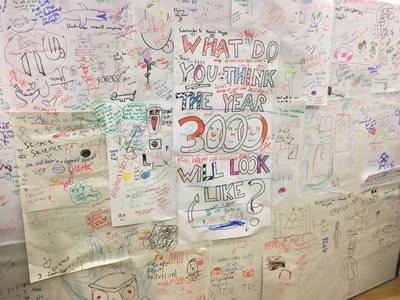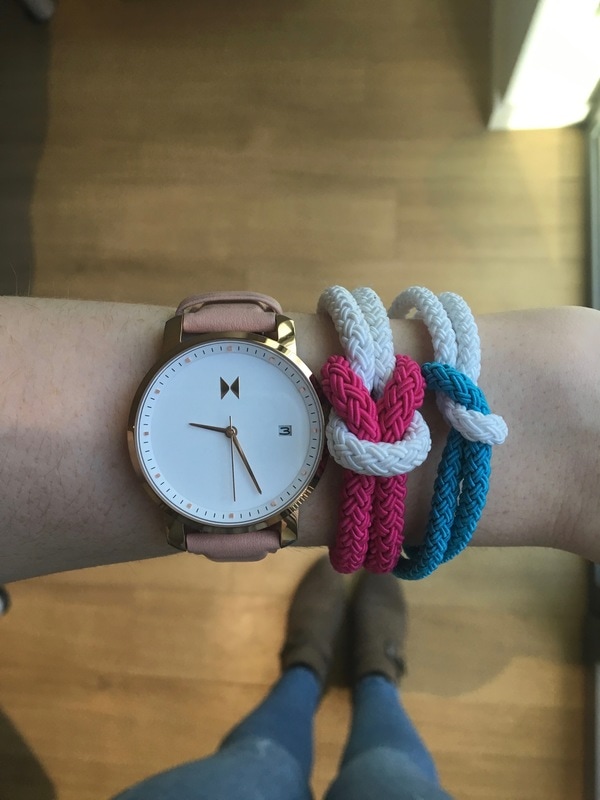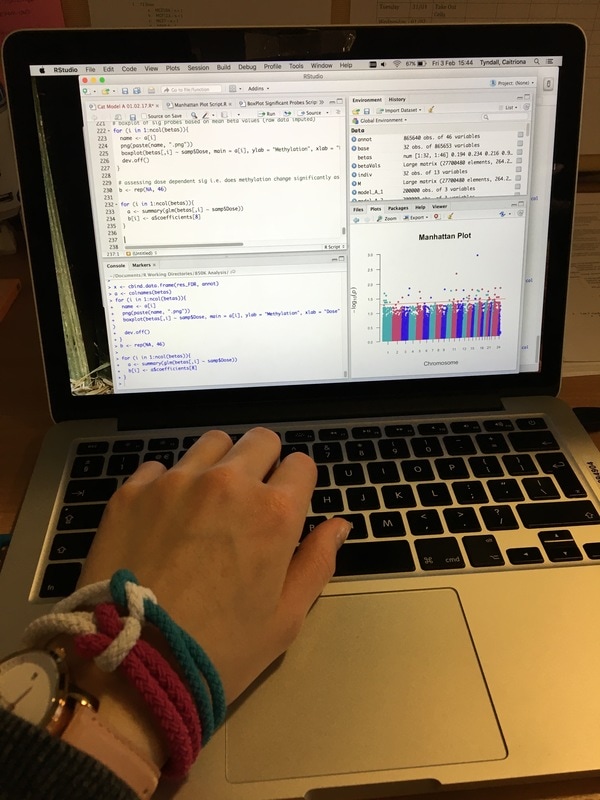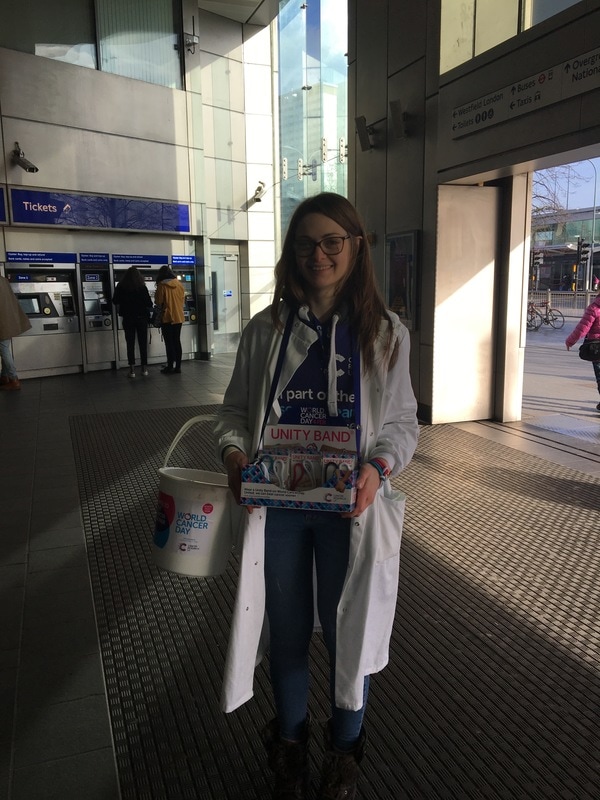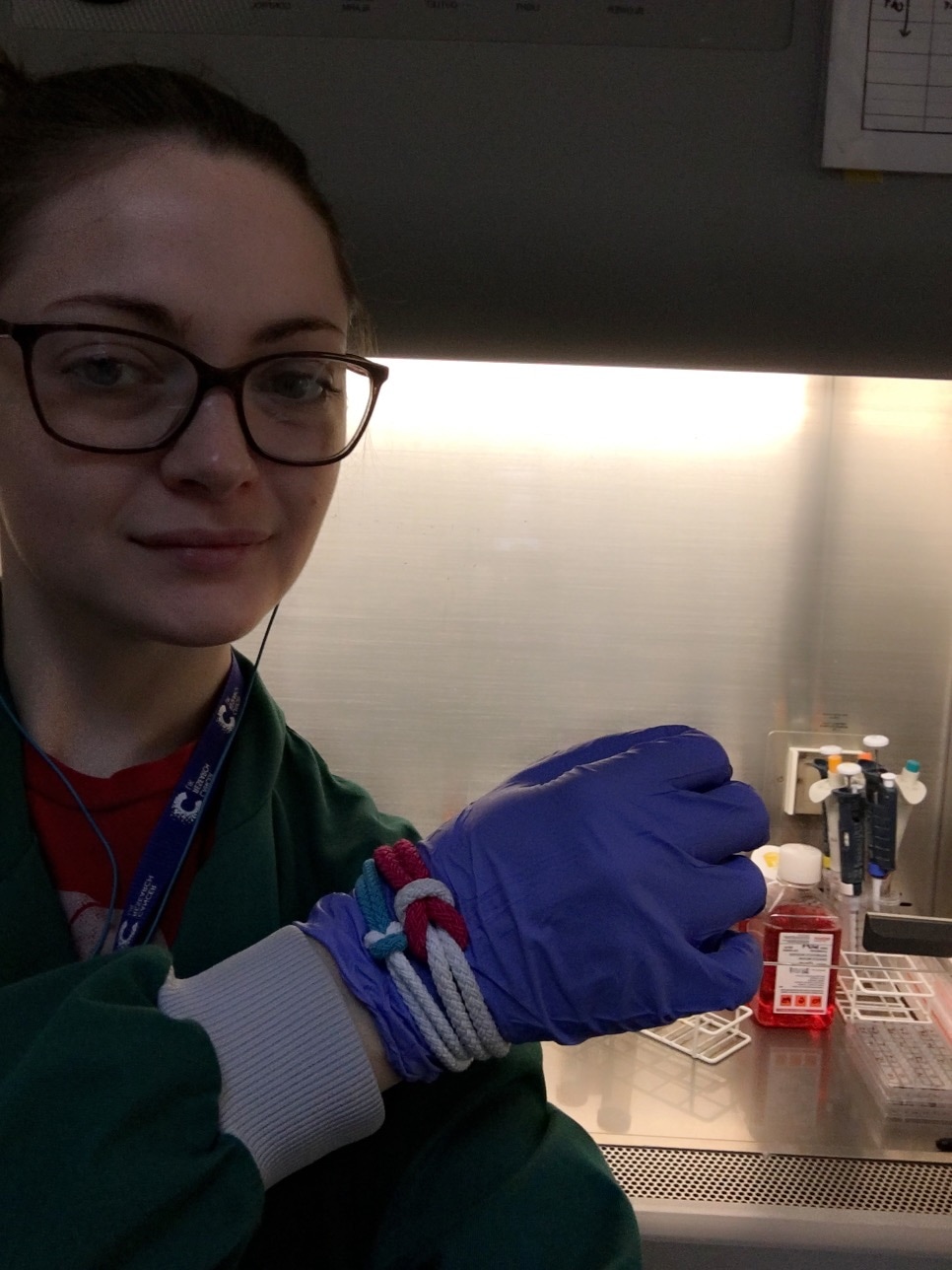|
Hello! It's been a while guys I know. I've missed you. I honestly haven't felt the urge to post recently but I thought I would come back and go through why I chose to trial my current job.
What is Public Engagement and Education (EPE)? The clue is in the name. EPE is the umbrella term to describe how people with the knowledge of something share with people who are not in the know. That simple. The aim is to create a dialogue between researchers and everybody else in order to share knowledge. I work as an EPE officer - I basically facilitate this dialogue. I report on how successful these interactions are, evaluate how we can do it better and help make that dialogue better, Fun fact - John Tyndall is quoted as saying "Knowledge once gained casts a light beyond its own immediate boundaries". His (possible) distant relative said 200 years later "Your research isn't for you, it's for everyone else" - Caitríona Tyndall (hey that's me!). What is an Engaged Researcher? Again clue is in the name. These are researchers who (surprise) engage with non-researchers. How do you become an engaged researcher? This funnily enough is suuuuuper simple. You ready? When you do something you stop and you ask yourself "How does this affect the average person?". That's it. To start on the journey of being an engaged researcher you just need to think about who this will impact. Why? Because once you start thinking about the person you start thinking about HOW you tell this person! You can put yourself in their shoes and think "What do they know now?" and "What do they need to know?". Case in point is the existence of this blog. I worked on epigenetics, I wanted people to know about epigenetics (because I LOOOOVE epigenetics) so I created a platform for me to explain what epigenetics is. And people (read: you guys) read the blog. BOOM! Engaged researcher! I have engaged with you about my research and you have (hopefully) learnt something. You're welcome. Also thank you! Why? Because I learnt a lot doing these blog posts. Most important - how to edit my writing. Critical for thesis writing. Also - how to explain myself confidently. Critical in PhD vivas. Basically I've learnt to be a better communicator. It's pretty awesome. So why is it important? Hey what would happen if you bought a ready made meal but it didn't have the ingredients on the back? Would you eat it? Depends on what it was called - is the name intuitive (chicken) or vague (meat). You need more information to make that decision. Now what if I told you that I'm digging up your back garden to improve your wireless internet connection? How does that intuitively make sense? Honestly if you know nothing about optical fibres it does not make sense. However with a little bit more information this will totally make sense! Fibre optical cables are glass fibres that you pass light down. The light bounces but doesn't escape. This is an incredibly efficient way to transfer data over long distances. The fibre optic cables connect to a receiver which uses sound waves to transmit your wifi signal over short distances. This is because sound waves are not very efficient as they lose signal intensity more than light. So if I'm trying to increase wifi connectivity in rural areas the most efficient way I'd to build more fibre optic cable pipelines to connect to the rural areas. This reduces the distance the radio waves have to travel making the wifi more efficient. And that is why I'm digging up your hydrangeas, Mary, so you can watch Alan Titchmarsh is HD. You're welcome. Essentially sharing information and being better at communicating is beneficial for everyone. Particularly gardening enthusiasts. So what have we learnt? Sharing is caring. Or to quote a really cool scientist (again) "Your research isn't for you, it's for everyone else." Dammit guys! We need to share what we know in a way that makes sense to everyone else.
0 Comments
Jargon can be a big barrier between people from different career areas. The most obvious barrier for me that jargon creates is between scientists and the wider public but I also find that within the scientific community jargon is still a massive problem. For example when I am chatting with my sister (an incredibly talented doctor) we still find ourselves getting slightly confused about certain words we'll say. We're both technically in the area of biology and medicine but there is still difficulties in communicating.
When you start off in any subject you are given words and definitions and eventually those words just become part of your vocabulary. It becomes so ingrained in your every day that you lose the ability to properly explain what you mean. Honestly try remember the real dictionary definition of a jargon word you use everyday. Hard right? Now imagine you're chatting to someone who has no basis in your area and you're trying to explain the jargon word. Even harder! Why? because every word needs context. And this is where the jargon becomes a barrier. My way of explaining a jargon word ALWAYS ends up in me using more jargon. You end up either getting frustrated and sounding like an idiot OR even worse you end up talking down to the person you're chatting to. So how do we combat jargon? Well first thing is to acknowledge you use it. The next thing is to identify key jargon words you would need to explain and practice how you would easily explain it. Easier said than done. For example: My scientific explanation: Cancer cells up-regulate expression of oncogenes while simultaneously down-regulating tumour suppressor genes. Many of these gene expression changes are driver mutations associated with specific cancer types. Now the tricky part is identifying how much your audience knows before you remove the jargon. You have to ask yourself - do they know what a gene is? Do they know what expression is? If the answer to those questions is yes then you're in for an easier time: Cancer cells can change the normal expression of genes by increasing expression of genes that help the cancer cells grow/create energy/create a good environment etc. while at the same time they decrease the expression of genes that would prevent the cancer cells from staying alive for example cancer cells turn off control of their growth so they can grow however much they like. Specific cancer types have gene expression changes in these pro-cancer and anti-cancer genes which can start the normal cells becoming cancer cells. These are called driver mutations because they drive normal cells into cancer. If the answer is no you have to think harder about what you say: Cancer happens when normal cells stop acting normal. They start to grow uncontrollably by making loads of energy and stopping themselves from dying. The way a normal cells becomes cancer is different in each cancer type and knowing these differences helps us treat cancer. The trick here is to not try to explain every word but you completely change your approach. The three paragraphs all mean relatively the same thing. Combatting jargon requires some practice but once you get the hang of it, it definitely becomes easier and easier. But why is it important? Well for a purely selfish reason it makes you better at writing scientific papers, communicating with your colleagues etc. For a less selfish reason it gives you an opportunity to share your knowledge with people who wouldn't necessarily have access to it. You can help combat the myths surrounding your area such as cancer research (there is not one cure all for cancer that doctors are hiding). You can also help people dealing with cancer understand what is happening to them or their loved one. People want to learn but it's frustrating when you don't know the language. There are a lot of pros to doing more to combat jargon and being more engaging with the public. Whatever area you're in, give it a go. You might find you actually like the challenge.
As I said before in a previous post a couple of weeks ago (watch-this-space.html) I submitted a blog post to The Cancer Researcher-EACR Science Communication Prize. One of my submissions was shortlisted and has been published on their online magazine.
I wrote this blog post about research engagement and why it's important for scientists to engage with the public. We need to be better at discussing cancer and cancer research with a wider audience. Nearly everyone in the world has been affected by cancer in some way so everyone is interested in learning more. It's also a great way for scientists to be asked questions they have never thought of. Plus it's so rewarding to share what you do on a day to day basis. Find the link below: magazine.eacr.org/engaging-with-the-scary-public-why-we-need-to-do-it-and-do-it-now/ This can also be found on my External Work page: External Work
This year at the Imperial Festival, CRUK wanted to focus on multi-disciplinary research
The second demo was looking at the work the National Physics Laboratory (NPL) are doing on building the "Google Maps of Cancer". The NPL were CRUK Grand Challenge winners giving funding to expand this idea.
The idea is to bring together all the information we have about cancer to go from the whole tumour down to the molecular level. We can use techniques such as Mass Spectrometry to gather information about cancer for example different metabolites produced by cancer compared to normal cells. The demo ask participants to scan the QC code on the blocks. This led to a neat short video about how mass spectrometry worked. At the end you go a result (i.e. the colour the block should be). You turn over the block and leave it. At the end of the day there should be an image from all the blocks turned over. For more information: http://www.npl.co.uk/grandchallenge/ On Sunday the 25th June I participated in the Chiswick 10K Fun Run! I am not much of a runner but I did walk very briskly! I also had the great opportunity to say a few brief words before the event to thank all the participants and tell them where their hard earned fundraising goes. I had a great time walking around Chiswick! It was fantastic to see the local community come out and run/walk against cancer. There were many stalls included CRUK science demos, face painting, a DJ from the local radio station, a burger van and more! The great volunteers and organisers put a massive effort into making the event fun and engaging! While the weather wasn't sublime it was perfect for running/walking in! The volunteers along the route were great at giving some encouragement, water and much needed directions! I was even given a jelly baby along the route which made my day! After 6km I was dying for some sugar! I love doing these volunteering events for CRUK, it gives me a lot of joy to be part of a team spreading such a positive message about beating cancer. And whether your event has 5 people or 5000 people, it can create so much awareness about cancer and about where money fundraised goes. I'm just glad to be a part of it! Even though I'm dying today after it! Just as an update, I did a little interview with the Chiswick Buzz at the end of the walk! If you want to see more about the day and also my small little part check out this link: http://www.chiswickbuzz.net/community/chiswick-10k-fun-run-2017 I'm at the end! On Thursday 1st June I was asked to present to a group of incredible volunteers for Cancer Research UK. Each year the Royal Family hosts garden parties at Buckingham Palace to show their appreciation for people who have made a positive impact in their community. It is a great honour to be invited. This year CRUK was allowed to send a small number of volunteers to the party to say thank you for being so great! I went to a pre-party gathering in the CRUK headquarters in Angel where I did a brief presentation about how I came to be in London, why I study cancer and the background to my project. It was a pleasure to meet these incredible women and to chat to them about my work! Please enjoy watching the video of my presentation. Warning: I say "em" A LOT! Also I exaggerated the number of women participating in the EPIC study - it's half a million. Disclaimer: the opinions in this presentation are my own. Thank you to Becky from CRUK for videoing this for me! 😊😊😊
Every year Imperial College London, UK hosts a science festival called Imperial festival. The festival boasts an impressive range of all different sciences from health to robotics and everything in between.
Each year Cancer Research UK has a stand. This is because CRUK has set up research centres all over the country and one of these, based in Hammersmith Hospital, is the CRUK Imperial Centre. This is a collaboration between Imperial College London, Imperial College NHS Trust and CRUK to provide top notch support and facilities for cancer research. The stand was manned by enthusiastic researchers funded by CRUK and/or CRUK volunteers. Our job was to get the public enthusiastic about cancer research by joining in some demos. The demos included:
I personally spent most of my time at the conversation C table. It was really interesting to see where people would put resources if they could choose. Surprisingly everyone started off with most of their resources in "Lifestyle". It makes sense, you want to prevent something from happening instead of trying to cure someone. But after a bit of discussion people started to move resources into "Genetics", "Diagnosis" and "Treatments". This was after realising that (1) people don't all follow the guidelines for a lifestyle that would reduce their cancer risk, (2) some cancers cannot be prevented by changing your lifestyle and (3) while this is a great long-term goal there are people suffering now who need short-term solutions. To my utter dismay, the most neglected topic was "What is Cancer?". To be able to tackle any of the other topics we need to know what we're up against. For example better understanding of cancer has lead us away from Chemotherapy and more towards personalised therapies. It was great to go and answer a few questions, have a chat and generally engage with the public. After participating in "Conversation C" I realised the most important aspect of cancer research to me is not any of the topics covered on the table. It was what we were doing at the table. Education and raising awareness of cancer can be such a powerful tool. As I said before, a lot of people don't change their lifestyle's even if they've been told it could reduce their cancer risk. From all the public engagement I have done with CRUK, plus this blog and chatting with people about my work, I realise that this is mostly down to the person not understanding why. Why does it increase or reduce my risk? What does risk actually mean? What is cancer? A lot of people don't even know certain things like obesity can increase your chance of getting cancer. For the cancers that still happen despite lifestyle factors, a lot of people don't know what genetic risk really means and don't realise the symptoms of a lot of cancers, which is why telling and engaging people is so important. I believe that if people were more informed and didn't feel like this was a subject you had to be a genius to understand (trust me I am far from being a genius) then you would have a lot more people willing to change their lifestyles or participate in studies and donate samples. This could change cancer research for the better.
Today is World Cancer Day. It's a day to remember those who have lost their lives to cancer but also to celebrate their lives and the lives of those who have survived. Cancer sadly affects us all, either directly or indirectly, and we have all lost someone we know. But we do know people who have beaten cancer and come out survivors in the end. I started my career in cancer research back in my undergraduate at the same time when someone very close to me was diagnosed with breast cancer. She is like a second mother to me and hearing of her illness was devastating. But she fought tooth and nail and came out a survivor. Her perseverance and bravery have always been an inspiration to me. I think of her when I find my own work weighing me down. I remember what I do is for her and the thousands of women and men suffering with breast cancer. Remembering her bravery keeps me brave.
Today is also a day to raise awareness. Prevention is key in reducing cancer cases. There are many preventative steps we can all take to ensure we don't get cancer or help diagnose cancer earlier. Health and lifestyle factors (known as risk factors) influence the chances of developing cancer a lot. And we can reduce this influence by changing small habits. The most common campaigns ask us to reduce our alcohol intake and stop smoking (all very important steps which I encourage). It is also important to keep an eye on what we eat and exercise more, a balanced, healthy diet and 3 hours exercise over at least three days (i.e. 30 minutes 6 days a week). We also want to keep an eye on our bodies, get to know what's normal for us so we can spot when something isn't normal. For women regular smear tests, mammograms and breast checks (and men). For men, regularly checking for testicular lumps and prostate exams. And for everyone keeping an eye on your organs and bodily functions (such as your bowel movements, indigestion, coughing and moles/skin abnormalities - http://www.cancerresearchuk.org/about-cancer/cancer-symptoms). By being more aware of ourselves and the steps we can take to detect cancer early we can together reduce cancer diagnosis and beat cancer before it begins.
The Unity Band is a symbol of our united front against cancer and a pledge to help beat cancer sooner. I helped sell some Unity Bands yesterday (3rd Feb) in Shepherd's Bush Underground Station. I was there as a scientist to do a "taste test" demo with the public to show how important personalised medicine is to cancer diagnosis and treatment. The demo was devised by research engagement officers and scientists working with CRUK. While we are all the same species we don't all look the same and there are subtle differences between us. Tumours are the same. While they all might be located in one area, for example the breast, they are not all the same tumour and don't act the same way. This can make treatment challenging. Personalised medicine focuses on these small differences and tries to tailor treatment for the individual rather than the masses.
For me, I spent my World Cancer Day in work doing what I do best. I hope that my small contribution to cancer research may help someone beat cancer sooner. |
AuthorMy name is Caitriona and I am a PhD student at Imperial College London, UK. Categories
All
|
